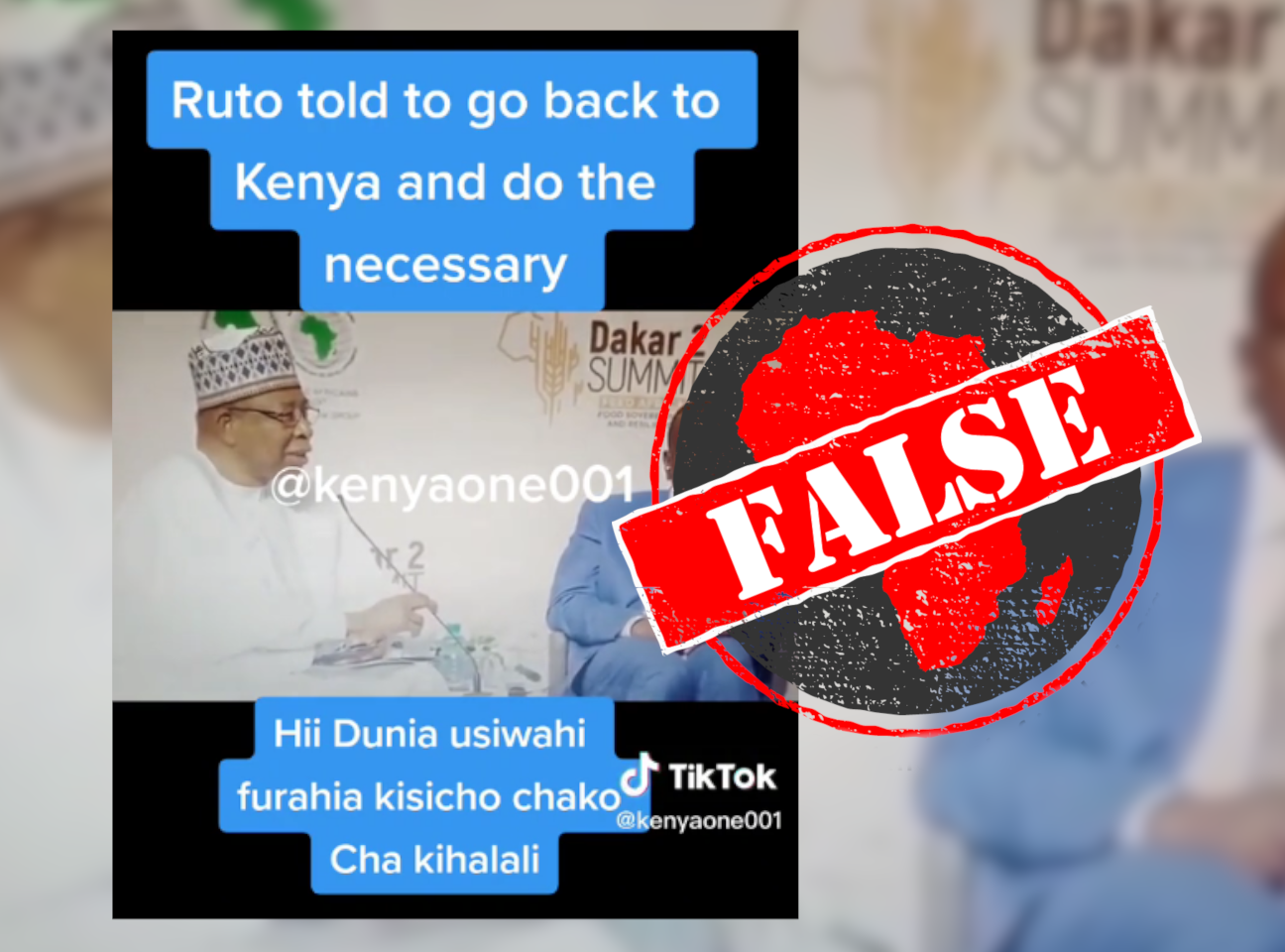A video posted on TikTok in late January 2023 shows Ouhoumoudou Mahamadou, the prime minister of Niger, sitting next to Kenyan president William Ruto. Mahamadou appears to be talking.
The West African country of Niger lies on the northern border of Nigeria.
A sign behind the two leaders reads “Dakar 2 Summit”. This was an African Development Bank (AfDB) meeting on food security held in Dakar, the capital of Senegal, from 25 to 27 January.
A voice in the clip, seemingly that of Mahamadou, appears to lecture Ruto. “I want you to go back to your country and fix your country,” it says. “The leader of opposition is crying hard that you stole his votes. Go back to your country and fix your country. Peace in your country is more powerful than this summit of feeding Africa.”
Later in the video the voice adds: “Let everybody have justice. We all know that you never won that election. I've been a president. I know all this.” Ruto listens without comment.
Ruto’s win in Kenya’s August 2022 presidential election was challenged in court. The court ruled in his favour, but at meetings and rallies opposition leaders continue to dispute the legitimacy of his government.
On TikTok, the clip has attracted more than 30,000 likes, some 2,400 comments and over 9,500 shares.
And it’s been shared across other social media platforms, often in a shorter version.
For example, this post of the video was quote-tweeted with additional commentary by a popular Twitter account with more than over 2.1 million followers.
Another Twitter post of the clip mistakes Mahamadou for former Nigerian president Olusegun Obasanjo. “Obasanjo taking no prisoners,” the tweet reads.
But what’s really going on in the video?

Voice of neither Mahamadou nor translator
An online search leads to the original AfDB YouTube video of the event. The circulating video clip is a shorter section of this. The two men in the clip are indeed Ruto and Mahamadou.
But the first clue that the video might be fake is that Mahamadou’s supposed comments are confrontational and politically charged.
Such blatant commentary on another country’s domestic matters would have caused a major diplomatic fallout even between enemies – let alone between Kenya and Niger, which share strong bilateral relations.
Another clue is that Mahamadou supposedly says: “I’ve been a president. I know all this.” Mahamadou has never been president, so this would be an odd claim to make.
Finally, in the longer video posted on AfDB’s YouTube channel, in the section at the 03:58:58 mark from which the clip is taken, Mahamadou is addressing the summit on a Nigerien food initiative.
He is speaking in French, but there is an English audio translation over his voice. The voice in the video doing the rounds is neither Mahamadou’s nor that of the translator.
The clip has been manipulated by adding a voice over a section of the original AfDB video. In addition to falsely alleging Niger’s interference in Kenya’s domestic affairs, it risks fanning more political tension.
Republish our content for free
For publishers: what to do if your post is rated false
A fact-checker has rated your Facebook or Instagram post as “false”, “altered”, “partly false” or “missing context”. This could have serious consequences. What do you do?
Click on our guide for the steps you should follow.
Publishers guideAfrica Check teams up with Facebook
Africa Check is a partner in Meta's third-party fact-checking programme to help stop the spread of false information on social media.
The content we rate as “false” will be downgraded on Facebook and Instagram. This means fewer people will see it.
You can also help identify false information on Facebook. This guide explains how.





Add new comment